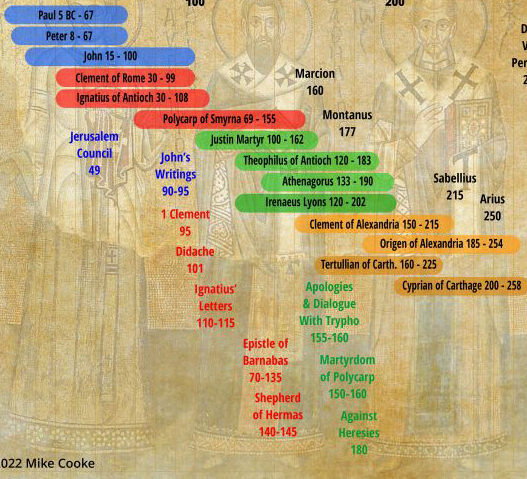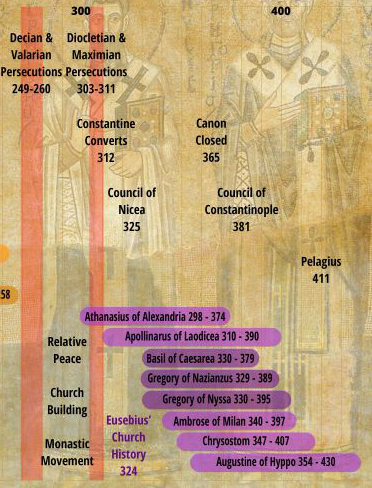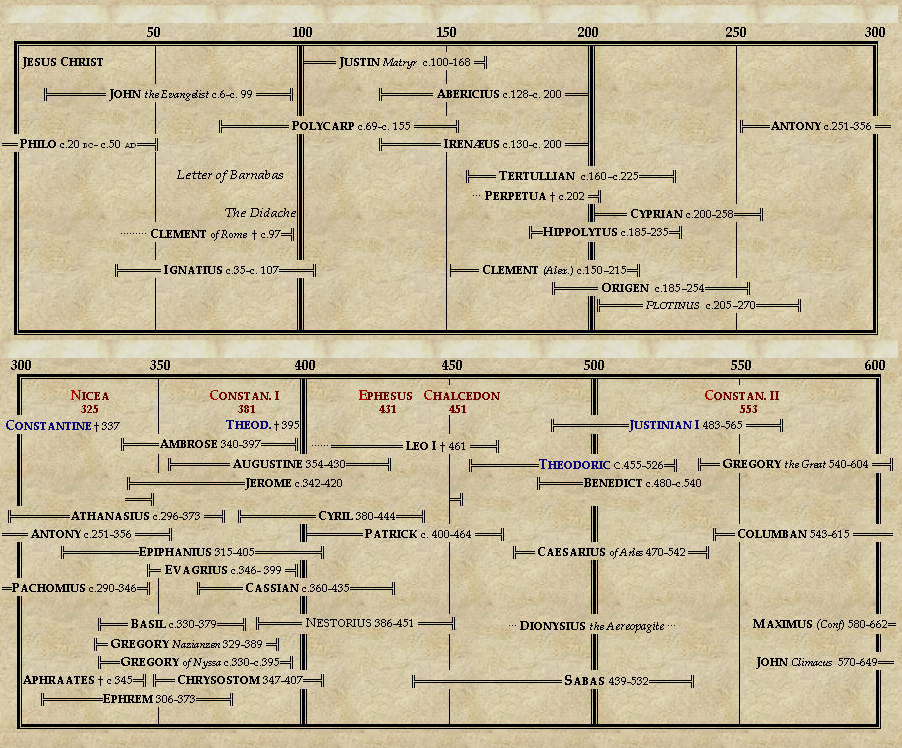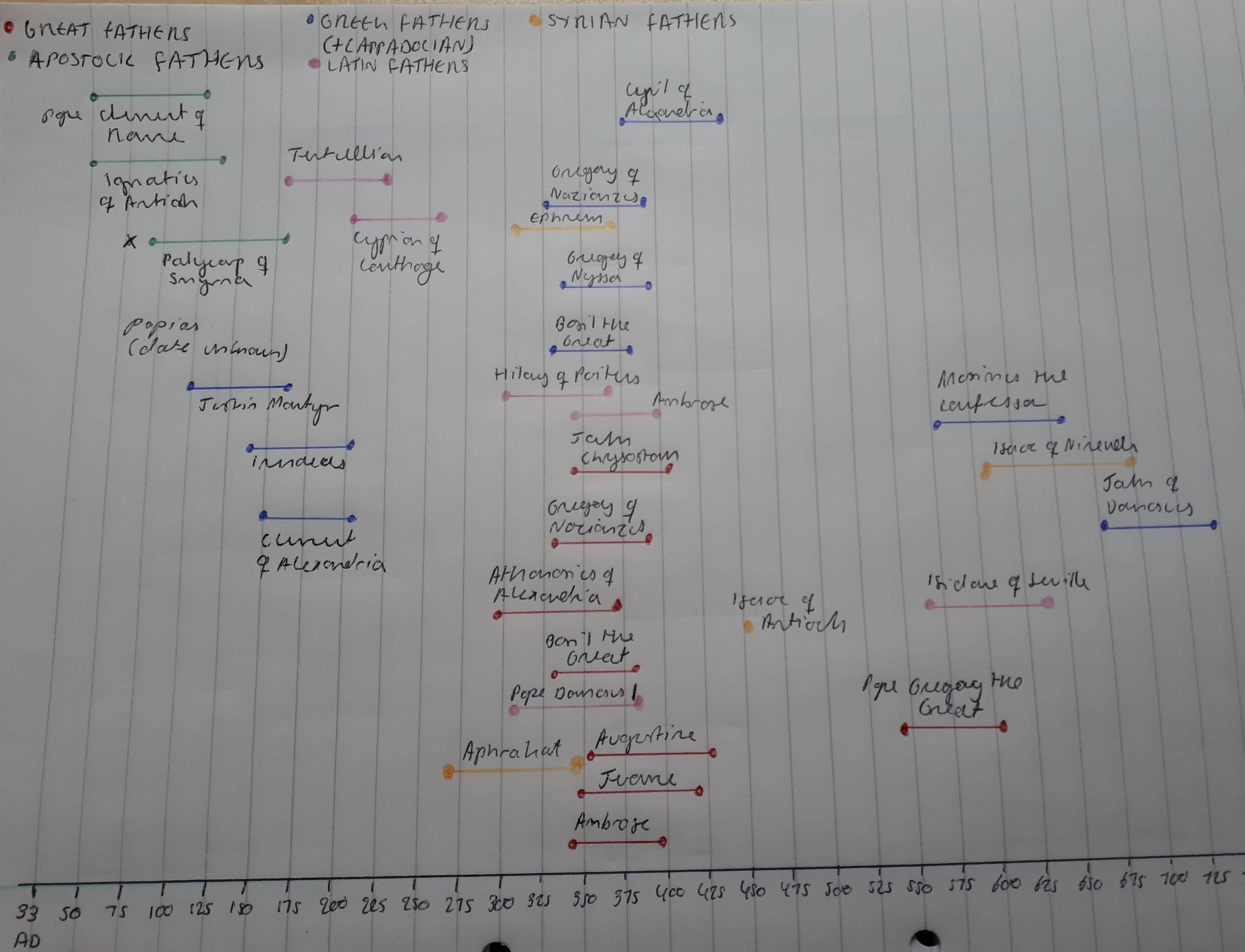The original liturgy:

The Roman liturgy:

Let’s take a short break from the examination of the patristic era writers to look at a timeline of the patristic writers, to give you an idea who was writing when. The images below are from Mike Cook, pastor of the Columbia River Foursquare Church. See his charts here.
The Early Era

We discuss 9 of the 11 patristic writers listed here in our discussion on the Eucharist. This covers the entire era prior to the rise of Roman Catholicism in the 4th century, and covers most of the 300 year period after Christ’s resurrection. No one in this list ever offers Christ’s body as a sacrifice.
Our series includes a few other names during this period that are not included in this graphic:
- Hippolytus of Rome (170-235)
- Cornelius of Rome (c.250)
- Dionysius (d.264)
- Lactantius (250-325)
- Aphrahat the Persian Sage (280-345)
Our series does not include Polycarp of Smyrna (69-155) or Theophilus of Antioch (120-183), as I did not read anything from them regarding the Eucharist. We are also missing Firmilian of Caesarea (256) and the Didascalia Apostolorum (3rd century),in which some useful Eucharist-related content exists. These may be added in the future.
The Transitional Period

Now we move into the 4th century. We discuss 7 of the 8 patristic writers (and one council) listed here in our discussion on the Eucharist. This covers the era—the late 4th century—coinciding with the rise of Roman Catholicism, when the concepts behind the Roman liturgy began to emerge. It is in this list that the development towards offering Christ’s body as a sacrifice begins, right around 350AD.
This series includes a few other names from this transitional period that are not included in the graphic above:
- Ephraim the Syrian (306-373)
- Cyril of Jerusalem (313-386)
- Serapion of Thmuis (353)
- Hilary of Poitiers (310-367)
- Apostolic Constitutions (375-380)
- Macarius the Elder (d. 390)
- Augustine of Hyppo (354-430)
Our series is missing Apollinarus of Laodicea (310-390), because I didn’t read anything from him on the Eucharist.
Other Considerations
As new evidence comes to light, I may visit or revist some of the names mentioned here. If anyone here is interested in countering—or confirming—anything I have written, consider looking into the names that I have not looked into.
None of those who wrote in the first 300 years of the church exhibit any doctrinal development. Quite a few of those on the second list do exhibit the first signs of doctrinal development.


